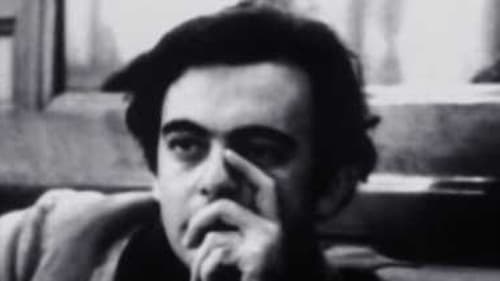
Director of Photography
Documentary about Brazilian filmmaker Glauber Rocha, one of the most important names in the Cinema Novo, with interviews with some of his friends and colleagues.

Director of Photography
After an extended period directing original screenplays, dos Santos returned to the creative engagement with literature that was the wellspring of his early masterpieces, offering a combinatory adaptation of five stories by the renowned Brazilian novelist João Guimarães Rosa. Openly embracing a mode of magical realism, dos Santos' celebrated film tells the story of a farming family defined by the absence of its father who abruptly abandoned his wife and children, sailing away down the river, including his son who continues to communicate with his father, speaking daily to him from the river bank. While offering an evocative vision of rural Brazil as a timeless land of mystery and solemnity, The Third Bank of the River is also bitingly satiric in the remarkable depiction of religious belief when the family moves to the city and its youngest member, a mesmerizing little girl, is revealed to be a kind of saint, capable of miraculous acts. -Harvard Film Archive

Director of Photography
Creative documentary on multi-faceted Brazilian musician Radames Gnattali

Cinematography
Documentary about the people who came from all over Brazil to work in the construction of the city of Brasilia, their stories, and the abuse and humiliation they suffered in the process.

Camera Operator
Documentary about the people who came from all over Brazil to work in the construction of the city of Brasilia, their stories, and the abuse and humiliation they suffered in the process.

Director of Photography
Filmed as Brazil was transitioning back into a democracy after over two decades of dictatorship, ‘Mulheres: uma outra história’ focuses on various aspects of women's participation in the Brazilian political scene and features interviews with some of the 23 women newly elected to the Constituent Assembly who managed to gain the approval of some of their proposals for the Brazilian Constitution which was being written at the time. The film features appearances from suffragist Carmen Portilho, who reminds viewers about the long history of struggle for women to earn the right to vote in the country, and Jandira Feghali and Benedita da Silva who would become some of the most influential political leaders in the country’s history.

Camera Operator
Documentary about the oppression of a group of a families of the MST, the Brazilian Landless Workers Movement, who invaded Anoni Farm, a farm in the state of Rio Grande do Sul, Brazil, in 1985, and Rose, a woman fighting for the right of owning a land and for elementary human rights, and mother of the first baby born in the camping site.

Director of Photography
Mr. Kapa and his assistant meet Iara, a mythical being, in a river with purple waters. Geléia, the assistant, fills a bottle with this magic water and makes three puppets turn alive.

Camera Operator

Cinematography
Mientras sustituía a un cámara del Centro Popular de Cultura (CPC) en 1962, Eduardo Coutinho filmó una manifestación de protesta por la muerte del líder campesino João Pedro Teixeira. El presidente del CPC ofreció a Coutinho la dirección de una película basada en un libro de João Cabral pero, debido a la falta de acuerdo con el escritor, el proyecto pasó a basarse en la vida de Teixeira y en los movimientos campesinos del norte de Brasil . Su rodaje comenzó dos años después, pero el material hasta entonces realizado fue requisado y parte del equipo fue detenido tras el Golpe de Estado acontecido en Brasil el 31 de marzo de 1964. En 1979 Coutinho retomó el proyecto, pero le dio una perspectiva distinta. Se reunió con los campesinos que habían colaborado en el pasado, y con los familiares de Teixeira, y recogió sus reacciones ante la dictadura brasileña de las dos décadas pasadas, usando también el material que había podido recuperar del antiguo proyecto.

Camera Operator
Mientras sustituía a un cámara del Centro Popular de Cultura (CPC) en 1962, Eduardo Coutinho filmó una manifestación de protesta por la muerte del líder campesino João Pedro Teixeira. El presidente del CPC ofreció a Coutinho la dirección de una película basada en un libro de João Cabral pero, debido a la falta de acuerdo con el escritor, el proyecto pasó a basarse en la vida de Teixeira y en los movimientos campesinos del norte de Brasil . Su rodaje comenzó dos años después, pero el material hasta entonces realizado fue requisado y parte del equipo fue detenido tras el Golpe de Estado acontecido en Brasil el 31 de marzo de 1964. En 1979 Coutinho retomó el proyecto, pero le dio una perspectiva distinta. Se reunió con los campesinos que habían colaborado en el pasado, y con los familiares de Teixeira, y recogió sus reacciones ante la dictadura brasileña de las dos décadas pasadas, usando también el material que había podido recuperar del antiguo proyecto.

Director of Photography
Biography of a Brazilian dancer who lived on an island and practiced nudism when it was forbidden by law.

Camera Operator
Documentary about Flamengo, one of the most popular soccer teams in Brazil

Director of Photography
Documentary about João Nogueira, popular singer and composer from Rio de Janeiro
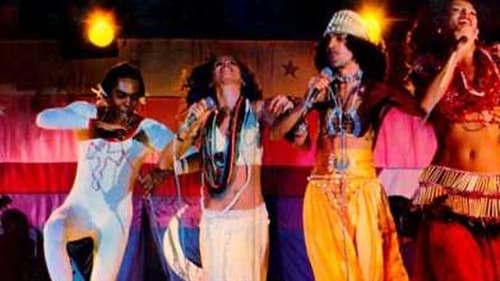
Director of Photography
The film records the commemorative tour of the ten years of the career of the Bahia singers Caetano Veloso, Gilberto Gil, Maria Bethânia and Gal Costa, who formed the group with the name of Doces Bárbaros (Sweet Barbarians), at the suggestion of Bethânia. Conceived to present the shows of the live album that would be released (Doces Bárbaros - Live), the documentary changed of tone when registering the arrest and judgment of Gilberto Gil and of a companion by possession of drugs. Gil was forced to go to a detox clinic, and only went out to participate in the programmed shows.

Director of Photography

Camera Operator
The contrast in the extremely rudimentary form of xelite mining and the use of tungsten, obtained from xelite, in the most complex instruments of nuclear technology.

Camera Operator

Director of Photography

Director of Photography

Director of Photography
During the Brazilian military government, journalist Estêvão is sent from Rio de Janeiro to Brasilia to cover the important statement of a minister, but takes the opportunity to deliver incriminating documents to another one.

Director of Photography
Directed by Sérgio Bernardes Filho, "Desesperato" tells the story of a writer (Raul Cortez) who leaves his home to carry out literary research in the country's most obscure settings. Unhappy with the current national situation, the historian joins a guerrilla force with serious consequences.
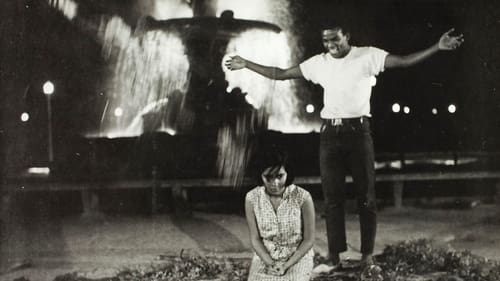
Cinematography
In search of a better life, Luzia leaves the Northeast of Brazil and goes to Rio de Janeiro, looking for her fiance who went first to pave their way. Alone in the Marvelous City, she is forced to accept the friendship and protection of Calunga and, later, the company of Inácio.

Director of Photography

Director of Photography
A brief look at Amazonas, its population, their costumes, the rich nature and its importance to Brazil and the world.

Director of Photography
A report on Sarney's inauguration as the governor of the Maranhão state. His promises are heard alongside images of the grim reality.

Director of Photography
The life of a runaway slave who founded the Quilombo dos Palmares, an outlaw community of Brazilian slaves.
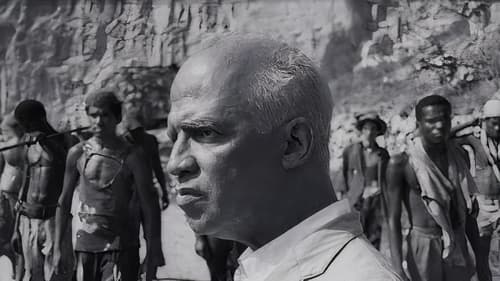
Assistant Camera
Men work in a quarry on the edge of a hill where a slum is located, of which they are residents. The slope is blown up, advancing to the land near the shacks. Slum dwellers are warned that new explosions can cause damage. The community decides to place itself on the slope, preventing another explosion; without attitude, the foreman gives up on blowing up the hill.
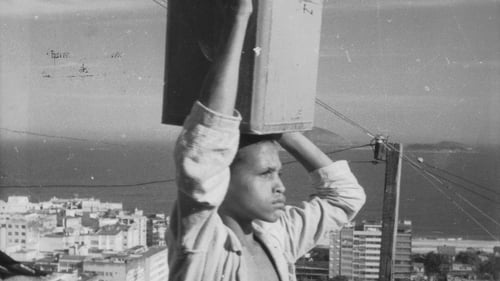
Assistant Director
Five segments about the hardships faced by people living in slums on hills in Rio de Janeiro.

Assistant Director of Photography
Five segments about the hardships faced by people living in slums on hills in Rio de Janeiro.




















